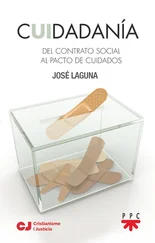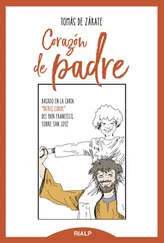“Señor Shephard?” Cantil’s voice outside the door. Shephard opened it and he came in.
“Call me Wade,” he said. “I like that better.”
The bellboy put the ice on the dresser and offered Shephard the two extra pillows. “For your back,” he said.
Shephard stood close to him now, and spoke slowly. “I’m very interested,” he said as he found another dollar, “in any visitors that I may have. If you can let me know of anyone asking about my room number here, or of anyone looking for Reverend Wade Shephard, I would appreciate it very much. If you are asked, say only that I am an older man. I would need to know, by phone, immediately.”
Cantil understood perfectly. “I’ll call you fast, Señor Wade, if anyone comes here for you. The snake sees all things in his hotel.” He smiled, thanked Shephard again for the tip, and quietly disappeared, leaving the pillows on the bed.
Shephard sat in front of the air conditioner and smoked. Positioned in the far corner of the room, he could see down the street, which by seven was still filled with pedestrians and an occasional motor scooter. He studied again the Identikit sketch of Azul Mercante, placing it on the table in front of him, imagining what he was doing, where he was staying, what plans he had made for Wade, the object of his revenge. When the evening came, announced only by a slow darkening to the east, he ordered dinner from room service. The steak picado arrived an hour later, just as the sun was streaking the sky in orange, dripping its color into the water. He ate silently and drank a light Scotch.
Jane answered on the first ring. “Are you okay, Tommy? Is Wade okay? Did you find Azul?”
He let her breathless rush play itself out. “I’m fine. Wade’s heading back to the States. No Azul, though, not yet. I miss you, Jane.”
“I miss you too, but don’t expect me to admit it.” She paused, then spoke more quietly: “Tommy, you know the cardboard file cabinets where dad kept all his financial stuff? Well, they’re gone. I left them in his living room, and went back to clean them out for good, but they’re not there. And your friend who drives the dark blue Porsche was outside your place when I fed Cal this morning. I’m a little scared.”
Shephard felt the adrenaline coursing through his veins like fuel. He closed his eyes and tried to quiet his breathing. “Jane, listen to me. I’m going to send a man over to stay with you. He’s big and he’s scary, but you can trust him. Stay home until he comes — it should be an hour at the most. He’ll know what to do.” Though his mind was reeling, Shephard tried to bring some assurance to his voice. If Harmon hurts her, he thought, I’ll kill him.
“I love you,” he said.
“I love you,” she said. Both at the same time.
He called Little Theodore and made arrangements, then dialed Louise’s Malibu number.
“Lou? This is Tom.”
“Where are you? I can hardly hear you.”
“Far away. Look, I just wanted to tell you that... well, everything between us is okay, at my end. I’ve been sitting here thinking, and thought you should know that. If we don’t get to see each other again, I at least want you to understand there’s no hard feelings, Lou.”
“I really don’t think we should see each other. It’s just too hard for you... for both of us.”
Shephard grinned: same old Louise, he thought.
“Tom, are you drunk again?”
“I’ll call you sometime. ’Night, Lou.”
Just after nine, Shephard placed his dishes outside the door, which he left unlocked. He arranged the extra pillows lengthwise, molded the thin covers into legs, formed a dark shirt into a head. With the bedspread pulled up and the lights out he could see the man asleep there — the Reverend Wade Shephard, perhaps — conked out after a hot day.
Shephard brought the Python from under the bed and clicked the loaded cylinder into place, then put the second cylinder in his pocket. He unstrung two yards of dental floss from its container and tied one end to the pull chain of the light over the table. To the other end he tied a pencil, which he set on the floor beside him. The light flicked on as he pulled, then off again. He backed into the farthest corner of the room, his shoulders resting against the cool wall, the Python in one hand and the pencil in the other, and waited.
With his eyes closed in the darkness, his mind flickered with fatigued visions of the last week, and when Jane’s image came he tried to hold it still to admire her beauty. He saw her bending back in ecstasy in the water of Diver’s Cove; he saw her warm and silent in the bed beside him while he stared at the alarm clock; he saw her the first day he’d met her standing in the waders. Intermittently, another face began to appear beside Jane’s, but it never materialized fully, remaining only half-formed, eclipsed by the raw energy that was Jane Algernon. It was only then that Shephard realized the fundamental change that had taken place inside him, that his heart was no longer a mourner for the woman who had left him, but a celebrant of the one he had found. For a moment the future — whatever it was and wherever it would be — seemed to overflow with possibilities of tenderness and love. He wondered if it was only the end of loneliness, an interruption of it. Among the images of Jane was the last he had seen of her, lying in his bed kissing him with gentle possessiveness, saying she would be with him. Then telling him again something that he had not heard in many years, words that seemed to have fallen from his own experience like extinct and useless birds: I love you.
If I die tonight in Mexico, it will be with you, he thought.
Just as he had done as a young boy, he released a flock of telepathic birds in the direction of California, trusting them to find her and sing the love that he would never be able to phrase himself.
Stiff and sore, his stomach queasy with fear and love, he stood, stretched, paced the room. It was nearly eleven. He slid open the window over the now-empty street and inhaled the clean night aroma of the ocean. With the air conditioner turned off, the only sounds were of an occasional scooter on the street and the muffled voices in other rooms.
Just before three in the morning, Shephard strapped on his shoulder holster and slid the Python into its place. He removed the extra pillows from the bed and untied the string from the pull chain. Locking the door behind him, he headed downstairs to the Serenidad lobby. The deskman was reading a magazine.
“Messages for Wade Shephard?”
“No, señor,” he said, checking the box for room 58. “No messages for you.”
“How many hotels are there on Isla Arenillas?”
The desk man, whose badge said Aguilar, shrugged as if the question were too demanding for such a late hour. “Many.”
“Exactly how many?” Shephard brought out a five-dollar bill and placed it on the desk. Aguilar grinned.
“I will tell you.” He opened a drawer and removed a bright orange pamphlet, which he gave to Shephard. It was a listing of island hotels, complete with addresses and phone numbers. He counted twelve.
“Is this up to date?” Shephard asked. “Current?”
“Oh, it is the most up to date,” Aguilar said with a nod. “Only place not listed is Hotel Cora, which is no open any more. Closed two years ago but they are soon to build it again. All others you will find on this.” He reached out and pinched the pamphlet between his thumb and forefinger, shaking it quickly.
“Where is Cantil?”
The deskman looked disappointed. “Across the water. None of us live on the island.”
Shephard turned for the door.
“Señor, con permiso, but the night life on Isla Arenillas is... minimal.”
Читать дальше












